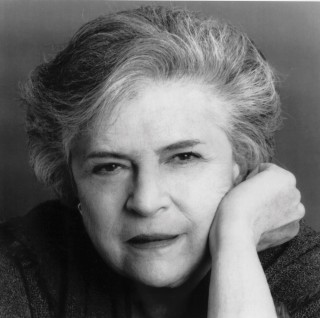Column Name
Title

Sylvia Rosenberg
Violinist Sylvia Rosenberg (Diploma '51) began her association with Juilliard at 10 and stayed on to study with Ivan Galamian (faculty 1946–80). Among the many others with whom she also studied was Szymon Goldberg (faculty 1978–89) at the Aspen Music Festival and School, where she has taught since 1980. At Juilliard, she won the Michaels Memorial Award and as a result performed as a soloist with the Chicago Symphony, which she did again when teaching at Ravinia's Steans Music Institute. After spending two years as a Fulbright scholar in Paris, Rosenberg was invited on a seven-month State Department tour of the Far East and Southeast Asia that “really opened my eyes to the world,” she says. That openness has characterized her career of teaching and concertizing, and is something she hopes her students will embrace as well. Rosenberg joined the Juilliard faculty in 2007 and has taught at, among others, London's Royal College of Music and Royal Academy of Music (the latter also gave her an honorary degree), Eastman, Peabody, Indiana, and Manhattan School of Music. Last spring, the American String Teachers Association named her its artist teacher of the year. On October 25, she'll give a chamber music faculty recital with Jerome Lowenthal (MS '56, piano), with whom she overlapped at Juilliard and in Paris; Samuel Rhodes, with whom she first played at the Marlboro Music Festival around 50 years ago; and Fred Sherry, whom she has long admired.
Body
How did you come to know you wanted to be a musician?
My parents loved music passionately, and I began playing the piano when I was 5 and violin at 7. I started at the Juilliard Preparatory Division when I was 10 and really knew I wanted to be a musician once I got there.
What was it like studying with Nadia Boulanger as a Fulbrighter?
She was an iconic and intimidating figure. The first thing she said was, “My dear, you know nothing.” She was formidable, as you can imagine, but was very nice to me and taught me a lot about music—all music, not just violin. She opened my ears in an amazing way.
What would surprise people about you?
How politically and socially interested I am—and that I'm very interested in science.
How has your teaching changed over the years?
I'm much more conscious of encouraging my students to develop into artists. I want them to become as cultured as possible—to go to museums and the opera, to read books, and then integrate them all. Beethoven and Verdi were very politically conscious, to say nothing of Shostakovich. If you play a piece by Shostakovich, you have to know what he went through. If you play a piece by Debussy, it's enriching to go to a museum and see Impressionist paintings. That makes for a more interesting life in music. I also encourage them to do outreach to schools and with the elderly. And I also want them to exercise their privilege to vote if they're American citizens!
What are you reading?
I love the Russian classics—I've just finished rereading Anna Karenina and I'm reading Beethoven for a Later Age by Edward Dusinberre (Advanced Certificate '92, Professional Studies), who's the first violinist of the Takács Quartet and also a friend of mine—we play chess together.
Anything else you'd like us to know?
I'm extremely grateful for the years I spent as a student at Juilliard. I was supported by a scholarship from G. Schirmer. I did have to work, too, but it paid for my academic expenses and allowed me to develop as a musician. And I'm so grateful to be back here teaching at the place that gave me my musical education.




